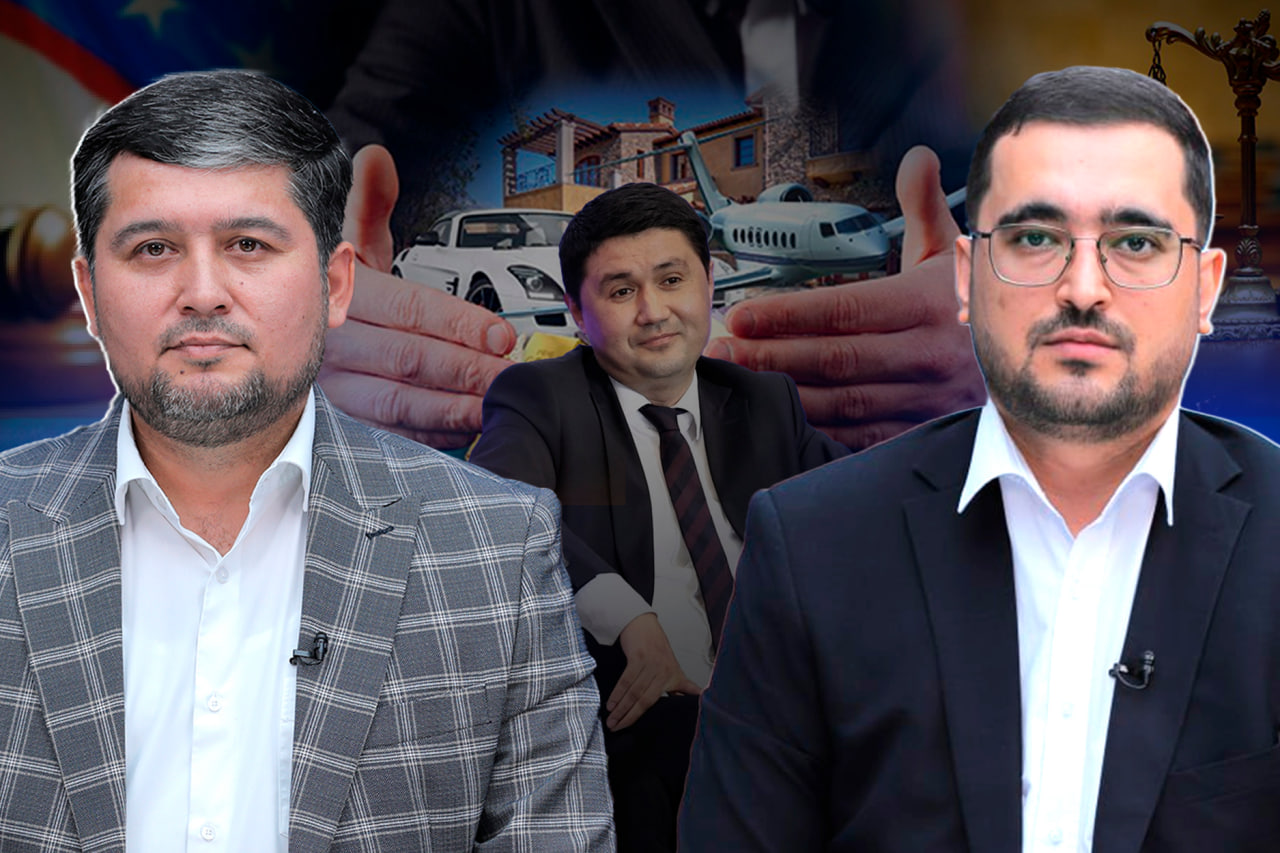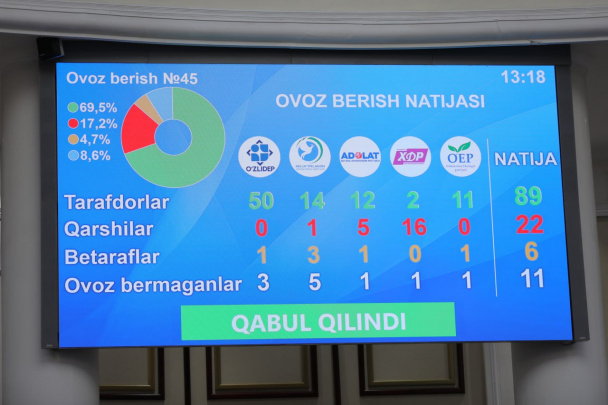Income declaration law stalls again: Why Uzbekistan keeps postponing it
According to a presidential decree, a law titled “On Declaration of Income and Assets of Public Servants” was to be developed by May this year. The task was assigned to the Anti-Corruption Agency headed by Akmal Burkhanov. However, as we reach mid-July, there is still no sign of the draft. Kun.uz spoke with experts about the importance of a law that has been postponed for eight years, and also discussed other pressing issues.

Since 2017, Uzbekistan has been anticipating the adoption of a law on the declaration of income and assets by public servants. During an extended government meeting chaired by the president on March 5 this year, dedicated to anti-corruption matters, a final deadline was set: the draft law was to be prepared by May. This was formalized by a presidential decree.
Yet July has arrived, and there’s still no sign of the law. Why the delay? Why is this law so important? And how effective is the Conflict of Interest Law, which came into force in January this year? Kun.uz posed these questions to political analyst Hamid Sodiq and legal expert Javonsher Rustamov. A summary of their conversation is presented below.
“The finances of government officials must be monitored”
At the start of the conversation, Hamid Sodiq explained why it is essential for public officials to declare their income and assets.
According to him, modern governance is based on the principle that power belongs to the people – and so do the resources and finances associated with it.
“John Locke, the philosopher, wrote two treatises on government, which laid the foundation of liberalism. Previously, power belonged entirely to kings, emperors, or khans. But Locke proposed the concept that power belongs to each of us – collectively, to the people.
“This gave rise to the concept that money, too, belongs to the people. The people hire public servants – hence the term ‘public servants’. In essence, these are not government servants but servants of the people, since they work with public funds. Therefore, every action they take must be transparent, as per this concept.
“Meaning, they should not have any money apart from their salaries. In feudal systems, rulers were expected to have wealth beyond a salary. But a citizen is a political term—it refers to someone who participates in governance, and is entitled to control power and finances. That’s the kind of state we are building.
“So, power belongs to the people – not to any one official. Therefore, the money belongs to the people too, and we, the public, have the right to monitor it. That’s why in modern states, the income and assets of public officials – and even their families – must be monitored,” Sodiq explained.
He further stated that one theoretical reason for the delay in adopting the law in Uzbekistan is the excessive concentration of power in the hands of a few, and the inefficiency of political institutions that should enforce power distribution.
“The goal of the law is to regulate social relations”
Legal expert Javonsher Rustamov attributed the law’s absence to three main factors: lack of political will, an underdeveloped legal framework, and insufficient technological capacity.
“First, there’s the issue of political institutions – this is tied to democracy and the structure of the political regime. But all three factors are interconnected and cannot function in isolation.
“Second, the legal foundation was not ready. The first law on anti-corruption was passed only in 2017. Before that, we didn’t have such legislation. Later, the Law on Public Service was adopted. Then, in 2024, the Law on Conflict of Interest came into effect. In 2025 – if I’m not mistaken, in May or April – a presidential decree was issued classifying public servants into categories, assigning responsibilities, and defining job grades.
“As Mr. Hamid said, without implementing some reforms, this law would be ineffective. We’ve only just started building the legal base. Had we tried to implement the draft law back in 2017 or 2020 within the two-month deadlines that were set, we wouldn’t have been able to enforce it in practice,” Rustamov explained.
He emphasized that the main goal of such a law is to regulate social relations and protect the weak from the powerful. “However, this spirit is absent in the current draft,” he added.
“There is no need to be afraid of adopting this law”
According to Hamid Sodiq, the key purpose of the law should be to preserve the balance of power. He argued that power is the greatest force, and naturally attracts financial and other resources – so regulations are needed to keep this in check.
“Political science distinguishes between oligarchs and polygarchs. This declaration law is aimed at combating polygarchs. What does that mean? An oligarch is someone who wields great economic and financial power. They’re not the real problem.
“Polygarchs, on the other hand, are politicians who have amassed immense wealth. ‘Poly’ refers to politics, while ‘garch’ refers to those with capital. These are the most dangerous figures because they are hybrids – it's unclear how to fight them.
“Once they accumulate vast wealth, they control powerful media outlets, have ties to criminal networks, and by circulating billions, they gain influence even beyond national borders. That’s when they disrupt the principles of power distribution entirely.
“I’d say, there’s no need to fear passing this law. Preparation doesn’t need to be endless. Political will is about readiness to engage in conflict. If you can't compete, what’s the point? If you can’t be transparent, what’s the point? Transparency is a must,” said the political analyst.
Throughout the interview, the speakers also discussed the importance of functional political institutions in addressing this issue, the problem of conflict of interest among officials, the state of this issue in Uzbekistan, and the performance of the Anti-Corruption Agency.
Related News

10:21 / 12.07.2025
Old cars to be retired: Uzbekistan moves toward modernizing vehicle fleet

17:02 / 08.07.2025
Parliament passes law on mandatory HIV testing for returning citizens and foreign workers

12:46 / 07.07.2025
New penalties and obligations await farmers: Draft law sparks controversy among deputies

18:21 / 27.06.2025



